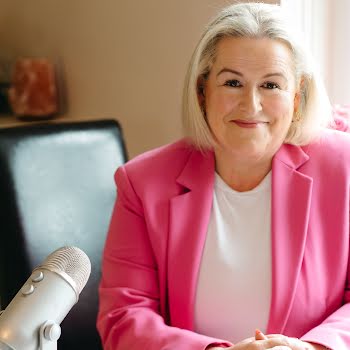
Sponsored
‘Women need to seek support’: Nutritional therapist Sarah Brereton talks about menopause in lockdown
Sponsored By

By IMAGE
14th Oct 2020
14th Oct 2020
Sponsored By

Approaching perimenopause and menopause can be challenging, especially at a time where reducing our social contact is the norm. Nutritional Therapist Sarah Brereton explains why talking is so important.
We are all getting used to living with social distancing. Going through menopause in isolation is not recommended.
We know it’s important to talk to our doctor when unusual changes occur with our body, but we can be embarrassed to open up to our friends and family, and this shouldn’t be the case.
For example, mood swings, anxiety, fuzzy thinking are all symptoms that many women report when the perimenopause hits, yet many women don’t tell anyone.
Women need to seek support during this transition and talk. We shouldn’t feel the need to try prove ourselves as superheroes that can juggle everything and not complain.
Seeking support from family and friends
Seeking support during menopause from our family and friends is just as important as considering the many options for symptom relief.
Let’s start with friends first – women form strong bonds with other women starting in childhood. We do this by sharing our most intimate feelings about our lives.
Sharing your feelings, fears and concerns with your loved ones about menopause is one of the healthiest things you can do for yourself.

Chances are, they are going through it, too. The experience may not be exactly the same, but you will receive the most important thing that will help you move through it, which is support and sharing stories and experiences.
It’s that knowing what to expect in perimenopause can in itself ease some of the discomfort of the transition. We can carry negative connotations from this stage from our mothers and aunties and stories they have told us.
Talking to your partner
Many women have reported to me that they are reluctant to share what they’re going through with their partner. They report feeling embarrassed about mood swings, reduced libido or vaginal dryness, particularly if their symptoms have affected sexual intimacy with their partner.
Partners want to know what they can do to help. Many men feel powerless to help their partners ease the discomfort from hot flushes, mood swings and sleep disturbances.
If sharing your feelings and experience with menopause feels intimidating to you, start with someone you know is safe and will listen without judgment. This person may be a family member, like a sister, or a best friend.
These are all-natural symptoms and part of our natural hormonal transition.
Your body’s hormonal transition
Some of the symptoms of the menopause are too often under recognised, undervalued and not taken seriously.
The psychological symptoms associated with the menopause such as loss of self-confidence, low self-esteem, anxiety and low mood and can be the ones that often affect women the most. We need to help each other through these challenging times.
Consider taking a supplement. Cleanmarine MenoMin is specially designed for peri-menopausal and menopausal women.

It’s rich in Omega-3 with Phospholipids, Vitamins B1, B2, B6, B12 and D3, as well as Rosemary Extract, Soy Isoflavones, Folate and Biotin.
Cleanmarine MenoMin also contains Vitamin B6 to support the regulation of hormonal activity, biotin which contributes to the maintenance of normal mucous membranes, as well as Vitamin B2 which contributes to the reduction of tiredness and fatigue; and Vitamin D which contributes to the normal function of the immune system.
This unique all-in-one Omega 3, Phytonutrient and Vitamin blend has been formulated specifically to give extra nutritional support; and is ideal for women approaching the menopause who want to feel good every day.

Sarah Brereton is a nutritional therapist with Cleanmarine, with over 15 years’ experience in nutrition. An expert in the field, she regularly contributes to magazines and appears on TV and radio. Sarah is passionate about helping people achieve great health and live well.
Read more: The subtle changes that come with menopausal mental health
Read more: Menopause has turned my life upside down, is that normal?
Read more: Perimenopause: The symptoms you may not know about























